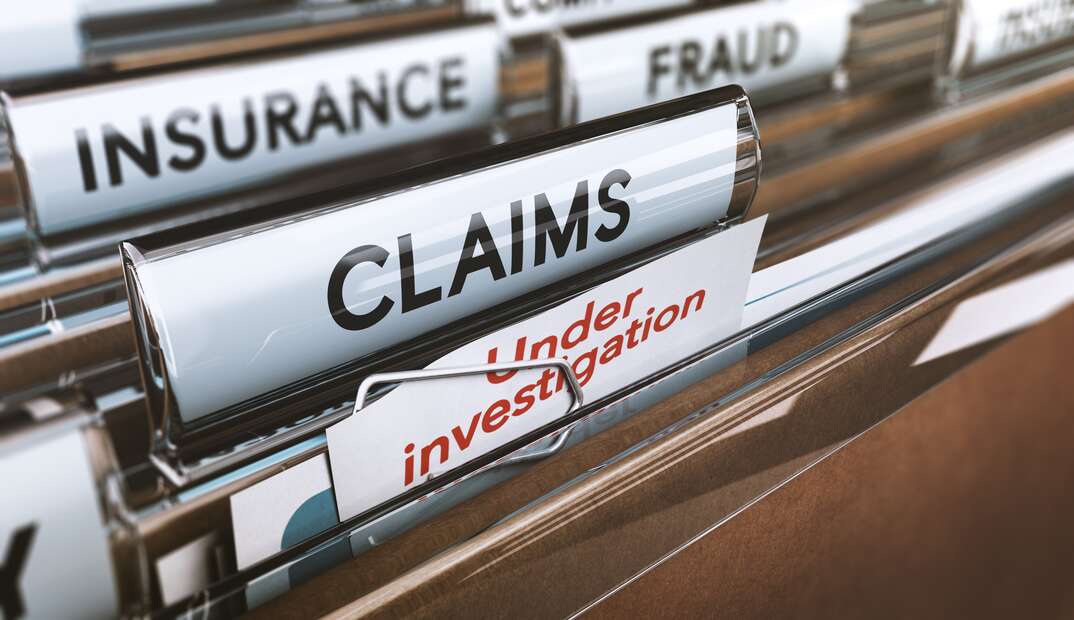- AppliancesElectriciansHVACLandscapingLocksmithPest ControlPlumbingRenovationRoofingT V RepairAll Home Improvement
- Car AccidentClass ActionCorporate LawCriminal DefenseDivorce LawEmployment LawFamily LawFinancial LawLegal AidMedical Injury LawyersMedical MalpracticeReal Estate LawWater Fire RestorationAll Legal
- InvestmentRetirementAll Finance
- Animal InsuranceAutoGeneral InsuranceHealth PolicyHome RentersAll Insurance
- DentalHealth SpecialistsAll Medical
- Animal CareVeterinaryAll Pets
- Auto GlassTowingAll Automotive
What Is Insurance Fraud?

According to the Coalition Against Insurance Fraud, scammers steal more than $308 billion a year due to insurance fraud. If you’re thinking of telling a little white lie to your insurance company or representative — think again. Insurance fraud comes with some very serious consequences.
On the other hand, if you believe you’ve been the victim of insurance fraud, help is available. This article goes into more detail regarding insurance fraud, the consequences of these actions and steps you can take if you’ve been a victim of these crimes.
Insurance fraud is the deliberate act of deception in the course of buying, selling or using insurance. These acts can be committed by consumers, insurance agencies, adjusters or agents and can include any type of insurance, including health, auto, homeowner's and life insurance.
For insurance fraud to be considered a criminal act, the individual or company must complete the act and do so with the intent to knowingly defraud the other party. If both actions coincide, the fraudulent party can be found criminally liable.
Types of Insurance Fraud
There are two main types of consumer insurance fraud, including:
- Hard insurance fraud: An act of hard insurance fraud occurs when a policyholder intentionally destroys or damages their own personal property with the goal of collecting insurance money.
- Soft insurance fraud: Soft insurance fraud is the most common type. While the policyholder may have a legitimate insurance claim, they intentionally lie or exaggerate the circumstances surrounding the claim with the main goal of collecting a larger settlement.
Insurance companies and agents can also commit insurance fraud. The most common type of this kind of fraud is failure to provide insurance protection. In these cases, the insurance company or agent collects premiums from consumers but fails to obtain a policy for them.
Scammers can be very creative, so there are many ways to commit insurance fraud, including:
- Auto insurance: There are many ways a consumer might lie or exaggerate when filing an auto accident claim, such as lying about their responsibility for the accident, exaggerating the extent of injuries or wrongfully claiming that their car was stolen.
- Homeowners insurance: Fraud cases involving homeowner's insurance claims include everything from a person setting their own home on fire to exaggerating the extent of damage to their home or property.
- Workers’ compensation: Insurance fraud involving workers’ compensation is one of the most common types of offenses. In many cases, the worker exaggerates or lies about the extent of the injury or illness to receive more compensation.
- Medical insurance: Health care insurance fraud may involve an individual using someone else’s insurance coverage to avoid paying for these services. Physicians and medical facilities can also commit insurance fraud by lying about the purpose or the extent of the medical treatment.
- Life Insurance: This type of consumer insurance fraud typically involves policyholders lying on their original applications, such as lying about their age or medical history.
More Related Articles:
- 7 Clauses to Look Out For in Your Homeowners Insurance Policy
- What’s a Deductible?
- Insurance Terms, What Is an Act of God?
- What Is an Insurance Premium?
- What’s the Difference Between Homeowners and Renters Insurance?
What Are the Consequences of Insurance Fraud?
The consequences of insurance fraud vary from state to state and case to case. Most states now have laws that specifically address insurance fraud. With regard to consumer fraud, the insurance company may simply deny your claim if it identifies fraud, or it may require you to pay all or a portion of your claim back.
However, in some instances, the insurance company can request law enforcement to investigate. In these cases, you could go to court. If found guilty, you could face numerous consequences, such as fines and imprisonment.
When insurance companies and agents commit these crimes, they may lose their license to handle insurance policies or face criminal charges. In these cases, the judge may order restitution for the victims.
Elocal Editorial Content is for educational and entertainment purposes only. Editorial Content should not be used as a substitute for advice from a licensed professional in your state reviewing your issue. The opinions, beliefs and viewpoints expressed by the eLocal Editorial Team and other third-party content providers do not necessarily reflect the opinions, beliefs and viewpoints of eLocal or its affiliate companies. Use of eLocal Editorial Content is subject to the
Website Terms and Conditions.The eLocal Editorial Team operates independently of eLocal USA's marketing and sales decisions.



